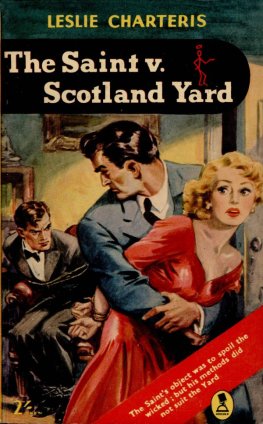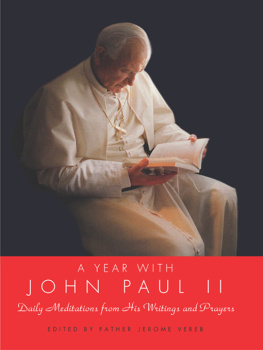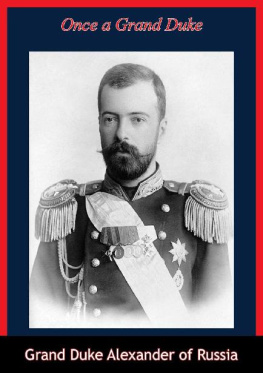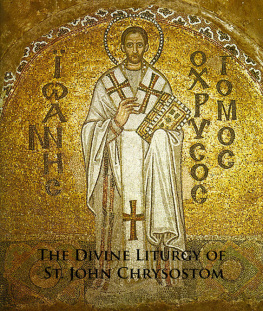INTRODUCTION.
THE Memoirs of the Duke of Saint-Simon, an abridgment of which is here presented to the public, occupy now by common consent a very high position in French literature. No work of a similar kind has ever probably been so popular; and in many respects it deserves its reputation. It forms a perfect panoramic picture, highly finished in all its details, of the Court of Louis XIV. during the last twenty years of his reign; and of the period of the Regency. Saint-Simon was, to a certain extent, an actor in the intrigues he describesat any rate, always sufficiently near to see their development and be acquainted with their promoters. Keen criticism, stimulated by the family pride of persons of whom he has spoken ill, has detected in him a few errorsinevitable in so vast an undertaking; but none that are wilful, or calculated to disturb him from his place as an authority.
Saint-Simon was the son of a Duke and Peer of France; and early became a duke and peer himself. He says scarcely anything about his childhood, and we never seem to feel the omission. He gives us the idea of never having been young. There is a gravity and earnestness even in his most trivial recitalsexcept when he allows his strong natural humour to break forththat appear to belong to a character ripe and mature from the very first. He does indeed talk of having played with the Duc de Chartres; but if the young prince played, we may be sure the future memoir-writer even then noted his movements and counted his steps.
The army was the first scene of Saint-Simons worldly experience. When very young he entered the Kings Musketeers; and in time rose to the command of a regiment. He served in more than one campaign, and appears to have discharged his duties conscientiously and well. While still in the camp he began to note down in a journal the events that were occurring around him, incited to do so by the pleasure he had received in reading the Memoirs of the Marchal de Bassompierre. Even at this early time it is evident that he was endowed with a rare power of observation, and good natural sagacity; and with a certain rigidity of opinion which prevented him from much sharing the vices with which he came in contact.
Saint-Simons military career did not last long. He had served no more than five years when the peace of Ryswick was signed; and the field never saw him again. The great war of the Spanish Succession began in 1702, and nearly all Europe was involved in it, until the treaty of Utrecht decided the question at issue; but Saint-Simon, being deprived of the promotion he thought himself entitled to, resigned his rank. In this, doubtless, he acted wisely. He seems to have had no special predilection for a military lifenever speaks of his interrupted career with soldierly regretdoes not even imply that he had talent in that direction. The Court, not the camp, claimed him. He was formed to move, not amidst helmets and plumes, but amidst powdered wigs and gold-headed canesto wander observant amidst fans and hoops, not tents and trenches. In that sphere, looking on at the intrigues and schemes that thickened or dispersed around him, joining in them himself when a friend was to be servedfor Saint-Simon was evidently capable of friendshipor an enemy to be thwarted,he was equally capable of enmity;maintaining himself in intimacy with most of the courtiers whose views were in harmony with his own, and with many whose views were very different; fighting for the rights and dignity of his order with the tenacity of a man who regards them almost as passports to eternal salvation, and who sees that in the confusion of new grades and unusual privileges arising, he and his fellows are counting for less and less every day; criticising the plans of government in operation, and drawing up new plans of his own; noting with a sort of prophetic cunning all political and diplomatic changes threatened, the struggles to gain power and the struggles to preserve it; and all the while keeping his ear open to reports of all domestic occurrences at the Courtthe love-affairs, the scandals, the marriages, the tragedies in this direction, the comedies in that;such being his position and occupation, we need not be surprised at the vast extent and varied nature of his Memoirs. A more active and public mode of life, in which he would have been forced to find work for the critics rather than play the critic himself, would not have suited him so well; and would have injured the interests of posterity. We see this plainly in the review of his career.
During the lifetime of Louis XIV., Saint-Simon enjoyed much indirect favour from his popularity with the leading personages of the Court and the Government; but the King, displeased with him in the first instance for his retirement from the army, and afterwards for his determined stand in support of the most petty privileges of the order to which he belongedto say nothing of his pedantic and meddling dispositionnever bestowed much notice upon him, and sometimes evinced marked coldness. It was not until the government fell into the hands of the Duc dOrlans, the Duc de Chartres of Saint-Simons childhood, that his position changed. With the Duc dOrlans he had always been on good terms. He had stood by him in fair weather and in foul; and now, to a certain extent, reaped the reward of his devotion. He became a member of the Council of State; and had nominally a voice in deciding the affairs of the nation. But he was not meant by nature to be a statesman any more than he was meant to be a soldier. Abler and more unscrupulous intriguers got hold of the helm; and Saint-Simon, despite his intimacy with the Regent, never had any sensible influence on great affairs, and continued to jot down notes of what he knew of the manners and character of the Court.
The Memoirs of the Duc de Saint-Simon extend over a period corresponding to his Court life, which ended about 1723. Every circumstance, however important or however trivial, that occurred at the French Court during this period, seems to be set down in them. They give us the most varied and the most curious information respecting the members of that Court; and are especially successful in introducing Louis XIV. to us in undress, without his crown, even without his wig, the plain unsophisticated thing, the lean and slippered pantaloon, who by the huge efforts of flattery has been introduced to posterity with the title of Great. The most criminal act that literature has committed has been to affect gratitude for this pitiful old gentleman; and it is agreeable to find one literary man, though a noble, painting him in his true colours. We seem to be present at the melancholy death of Hawthornes Feathertop; or, after having watched the brilliant course of a rocket through the air, to be picking up the miserable stick round which the splendour clung.
It is true that these Memoirs refer chiefly to the latter days of Louis XIV., when he had become tied to the apron-strings of that stately intriguer, so pious and yet so bitter, Madame de Maintenon; but I do not think this is the reason he appears so mean. He was always mean; and never meaner than in his young days, when he had beautiful mistresses, some of whom were not so contemptible as others. We know the promises he made that he did not perform; and the offensive word that exists to describe such conduct. But this is not the place to discuss the general character of this smirking, grimacing old dancing-master, who has given his name (among the French) to a literary and artistic agebecause he patronised Lebrun, and could not understand Lesueur, Claude Lorrain, and Poussinbecause he gave Molire the smallest pension accorded to any poet of his day, wasted the genius of Racine in composing his panegyric, and corrupted the taste and morality of France, by forcing its writers, even the best, to indulge in the most ignoble and loathsome laudations of the most ignoble and loathsome of persons. The reader is requested to compare the character of Monseigneur as described with unerring accuracy in these Memoirs with the following disgusting paragraph printed in small capitals in the midst of one of the master-pieces of French literature: La Bruyres Characters:













